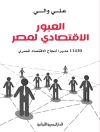Stopping Losses from Accidental and Malicious Actions
Around the world, users cost organizations billions of dollars due to simple errors and malicious actions. They believe that there is some deficiency in the users. In response, organizations believe that they have to improve their awareness efforts and making more secure users. This is like saying that coalmines should get healthier canaries. The reality is that it takes a multilayered approach that acknowledges that users will inevitably make mistakes or have malicious intent, and the failure is in not planning for that. It takes a holistic approach to assessing risk combined with technical defenses and countermeasures layered with a security culture and continuous improvement. Only with this kind of defense in depth can organizations hope to prevent the worst of the cybersecurity breaches and other user-initiated losses.
Using lessons from tested and proven disciplines like military kill-chain analysis, counterterrorism analysis, industrial safety programs, and more, Ira Winkler and Dr. Tracy Celaya’s You CAN Stop Stupid provides a methodology to analyze potential losses and determine appropriate countermeasures to implement.
* Minimize business losses associated with user failings
* Proactively plan to prevent and mitigate data breaches
* Optimize your security spending
* Cost justify your security and loss reduction efforts
* Improve your organization’s culture
Business technology and security professionals will benefit from the information provided by these two well-known and influential cybersecurity speakers and experts.
Über den Autor
Ira Winkler, CISSP, is President of Secure Mentem and is widely viewed as one of the world’s most influential security professionals. Ira is the recipient of several prestigious industry awards, including being named ‚The Awareness Crusader‘ by CSO magazine in receiving their CSO COMPASS Award. Dr. Tracy Celaya Brown, CISSP, is President of Go Consulting International. She is a sought-after consultant in IT Security Program Management, Organizational Development, and Change Management.












